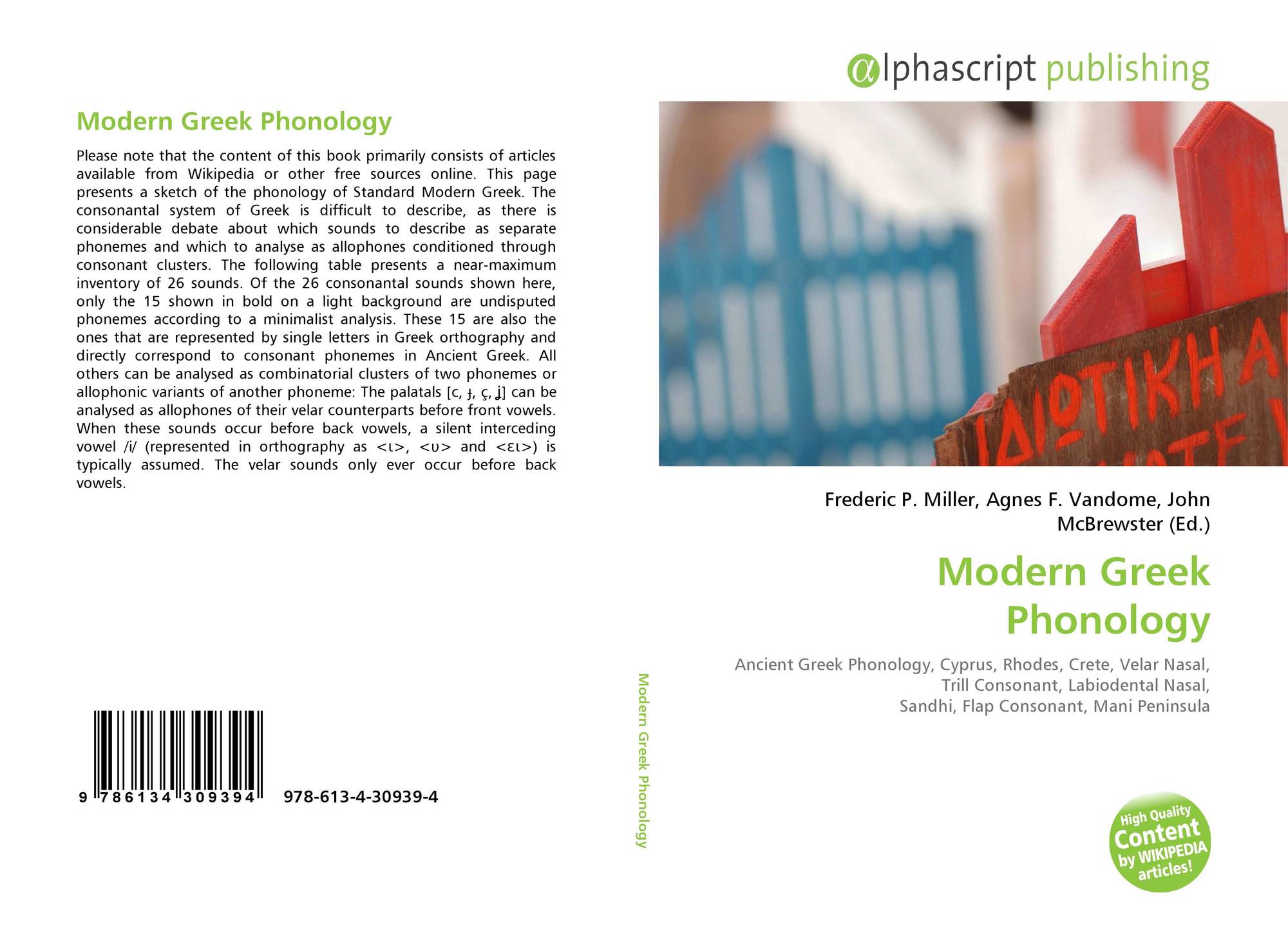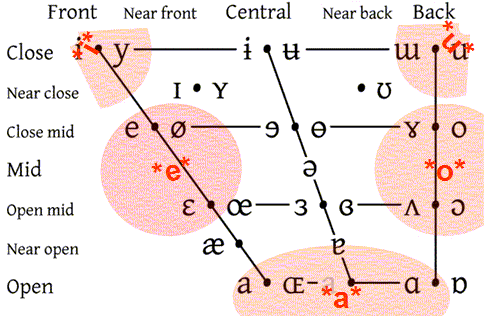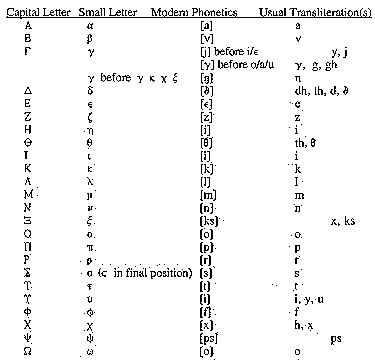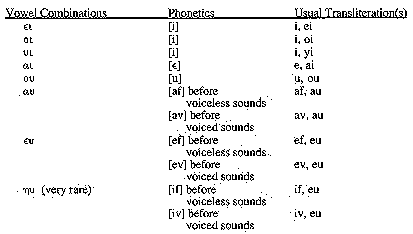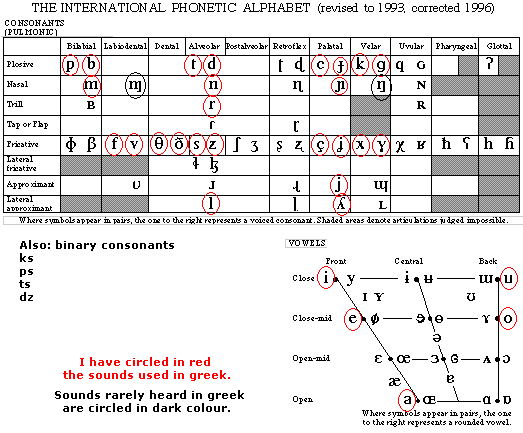Modern Greek phonology
The pronunciation of modern Greek is virtually unchanged since about the 10th century. It is relatively uniform, from the text written with the Greek alphabet goes pronunciation few exceptions clearly. For this, however, the knowledge of some rules is necessary because many of the most consonant letters can be realized in several pronunciation variants. Conversely, the Modern Greek orthography is difficult, since except for the accents, the ancient Greek name was largely maintained until today and many sounds that are equally spoken, are represented by different graphemes.
Vowels
The five Greek vowels are expressed by numerous letters and letter groups. All vowels are always pronounced short / i / and / u / are in contrast to the Germans were always closed. For connections of two vowel letters a diaeresis ( ¨) indicates to the second letter or the accent on the first vowel signs that the two letters must be issued separately.
Consonants
The Modern Greek is characterized by a variety of fricatives, which can also be connected to the German sometimes unusual combinations of consonants. Importantly for the discussion is often the following statement on the consonant vowel: Before the " bright " vowels [i ] and [ ɛ ] many consonants "brighter" or "soft" pronounced as before the "dark " vowels [ a], [ ɔ ] and [ u]. Another peculiarity of the Greek, the costs incurred before " bright " vowels palatalized sounds [k ʲ ], [ g ʲ ], [ l ʲ ] and [n ʲ ], in which the tongue easily lifts the soft palate after articulation of consonants, making a hinted j - according to (the latter two only after merging with [i ] at popular words ) arises. The Modern Greek also has numerous Sandhi phenomena in which two successive sounds, even at the Wortfuge, tonally align each other. For the pronunciation of many consonants so also is the phonetic environment in which they are located, significantly. For German unusual is that consecutive words not offset from one another, but are tonally connected.
1 The example cited here iota ( ι ) is provided for each grapheme, which / represents an unstressed / i sound. This / i / itself is not pronounced, but only shows the palatalization of the preceding it Konsonantens ( here γ ) to.
Literature and sources
- Heinz F. Wendt: Practical textbook Modern Greek. Munich and Berlin ( Langenscheidt ) 1965, ISBN 3-468-26210-8
- Heinz F. Wendt: Pocket Dictionary Greek. Munich and Berlin ( Langenscheidt ) 1995, ISBN 3-468-11213-0
- Modern Greek
- Pronunciation of individual languages


